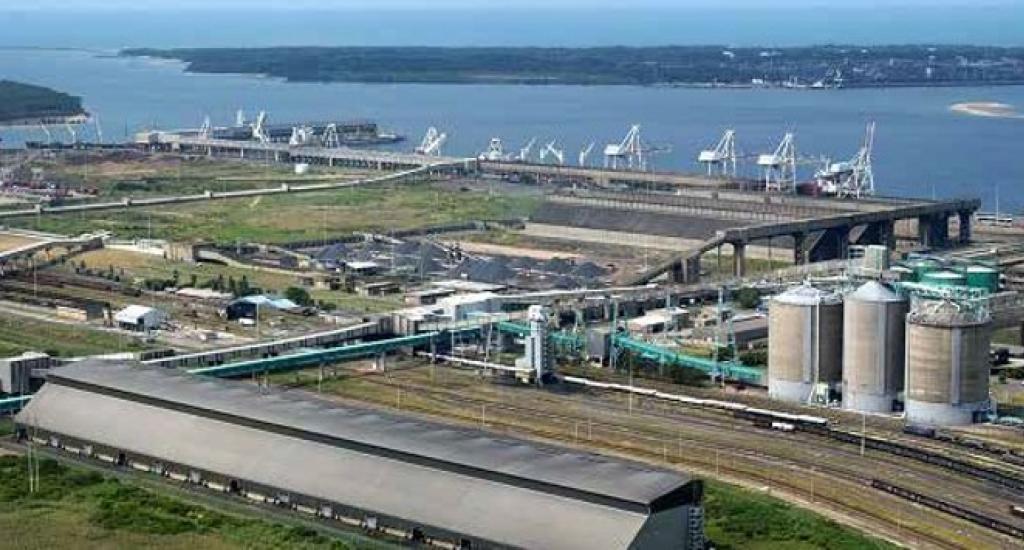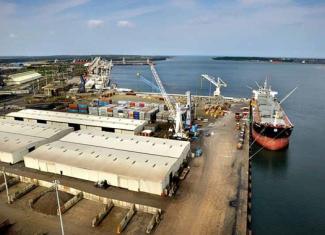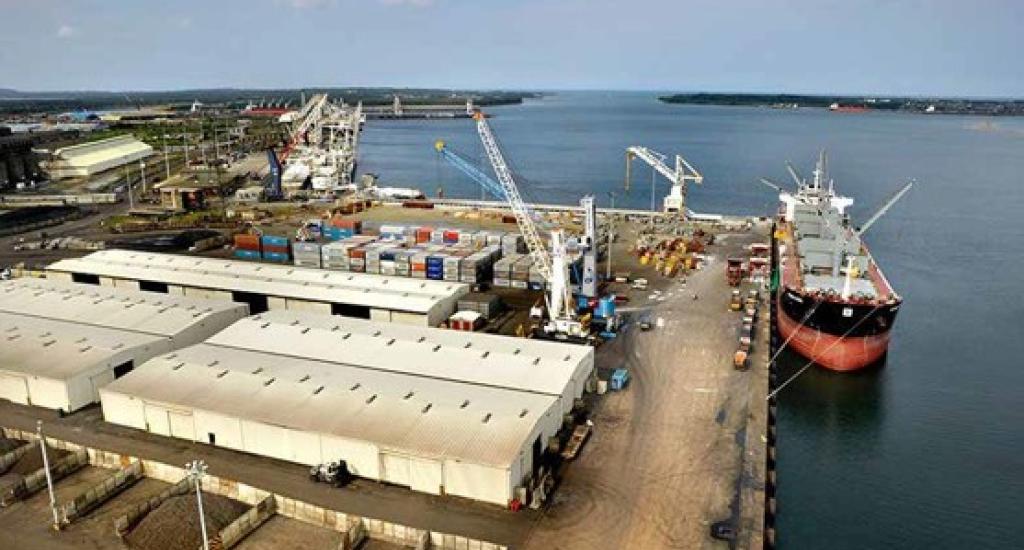TNPA’s game changer investments to transform SA’s maritime and energy sector

In a historic stride towards reshaping South Africa’s energy and maritime logistics landscape, the Transnet National Ports Authority (TNPA) has signed two major Terminal Operator Agreements in the South Dunes Precinct of the Port of Richards Bay, KwaZulu-Natal.
TNPA Acting-General Man- ager for Commercial Services, Dr Dineo Mazibuko, described the development inked in February as a “transformational energy project”.
The agreements, signed with Zululand Energy Terminal and FFS Tank Terminal, herald the birth of South Africa’s first Liquefied Natural Gas (LNG) import terminal and the revitalisation of a liquid bulk terminal, respectively.
“We can say [this] is the first LNG import terminal in South Africa to actually address the country's energy challenges by introducing additional gas-based electricity capacity by 2027.
“It supports the gas-to-power programme of South Africa and aligns with the Department of Mineral and Petroleum Resources’ (DMPR) strategic plan for 2020 – 2025, enhancing energy security and transitioning to cleaner energy sources. So, it is indeed the cornerstone of South Africa's decarbonisation strategy.”
These developments are designed not only to bolster the nation’s energy supply but to spark socio-economic development through job creation, infrastructure investment and the realisation of Transnet’s long-term strategic objectives.
The importance of the LNG terminal agreement
The LNG terminal agreement follows an 18-month long development process that began with the issuance of a request for proposals in December 2022. After rigorous evaluation and negotiation processes, the signing ceremony marked the culmination of years of planning, intergovernmental coordination and private sector engagement.
“The project involves the design, development, finance, construction, operation and maintenance of the LNG terminal over a 25-year concession period,” Mazibuko said. “It creates infrastructure capacity at the Port of Richards Bay to import LNG, with an initial throughput of 2 million tons, [and] potentially growing to over 5 million tons over the concession period.”
The LNG terminal, backed by an investment of approximately R7 billion, is expected to inject over 1 000 direct and indirect jobs during the construction and operational phases.
“It is a game changer for the region and the country,” Mazibuko noted, emphasising the broad socio-economic ripple effects – from skills development to small business opportunities in the design and construction phases.
Strategic enabler
Alongside the LNG project, TNPA has finalised a 25-year concession with FFS Tank Terminal for the development and operation of a brownfield liquid bulk terminal. Occupying a site formerly used by Engen, this project is underpinned by a R123-million investment.
“The FFS project is a strategic enabler on our side. It ensures we modernise the existing infrastructure to enhance the port’s capacity to handle liquid bulk, securing economic growth,” said Mazibuko.
“It complements the LNG terminal and forms part of our broader vision to make the South Dunes Precinct a hub for energy transition and maritime logistics.”
The upgraded terminal will offer state-of-the-art bunkering services and increase the port’s ability to accommodate various vessel types — from bulk carriers and container ships to oil tankers and break-bulk vessels.
“The facility is expected to deliver bunker fuel services to a range of vessels, ensuring a reliable fuel supply and increasing maritime efficiency,” said Mazibuko. “At the same time, the LNG terminal will enable storage, regasification and distribution of LNG, which is vital to supporting the growing use of LNG as a cleaner bunker fuel.
A major step towards energy diversification
For TNPA, these developments are not just infrastructure projects but key components of a national logistics and energy transformation strategy.
“These terminals align with Transnet’s strategic objectives of lowering the cost of doing business, ensuring security of supply and providing appropriate port and pipeline infrastructure,” explained Mazibuko. “This is being achieved through partnerships with the private sector and reflects a step towards aligning our freight logistics business with the country’s key commodities.”
She added that the project gives expression to Transnet’s strategy posture of positioning ports like Richards Bay, Ngqura and Saldanha Bay as energy logistics hubs capable of supporting South Africa’s 6 000-megawatt gas-to-power goal.
“The LNG terminal alone will enable the introduction of about 2 000 megawatts of additional electricity capacity by 2027, as part of the Integrated Resource Plan,” she said. “ That is a major step towards energy diversification and national resilience.”
A magnet for investment and growth
The anticipated benefits extend far beyond the energy grid. “Beyond construction and operations, we are talking about opportunities for engineers, finance professionals, legal experts, and technical personnel in maritime logistics,” she said. “ There is also space for local SMMEs to participate in service provision, making this a truly inclusive development”.
These efforts will play a crucial role in fostering transformation within the maritime and energy sectors, particularly in KwaZulu-Natal, where the Port of Richards Bay is already a key driver of provincial economic activity.
“These projects reaffirm the port’s role as a leading energy ecosystem hub and a magnet for investment. The anticipated employment and enterprise development opportunities will drive inclusive growth and skills development in the region,” Mazibuko added.
President Cyril Ramaphosa’s announced national priority initiatives during the State of the Nation Address.
“This is a critical project that will assist in diversifying the country's energy supply, a priority given the energy challenges we have experienced [as a country],” said Mazibuko. “It is also a key enabler in South Africa’s decarbonisation strategy. TNPA’s role is to facilitate trade and ensure the critical infrastructure needed for national growth is developed and delivered.”
The success of these projects has been made possible through collaboration with a wide range of stakeholders, including the DMPR, Eskom, Transnet Freight Rail, Transnet Pipelines and the National Energy Regulator of South Africa. “We ensured that every relevant entity – public and private – was consulted. Interested participants were given equal opportunity to bid and participate in this historic venture,” said Mazibuko.
The signing of these agreements is not the end, but the beginning of a new era for the Port of Richards Bay and for South Africa’s energy landscape.
“TNPA is proud to be playing its role in building a diversified, decarbonised and competitive economy,” she said.






